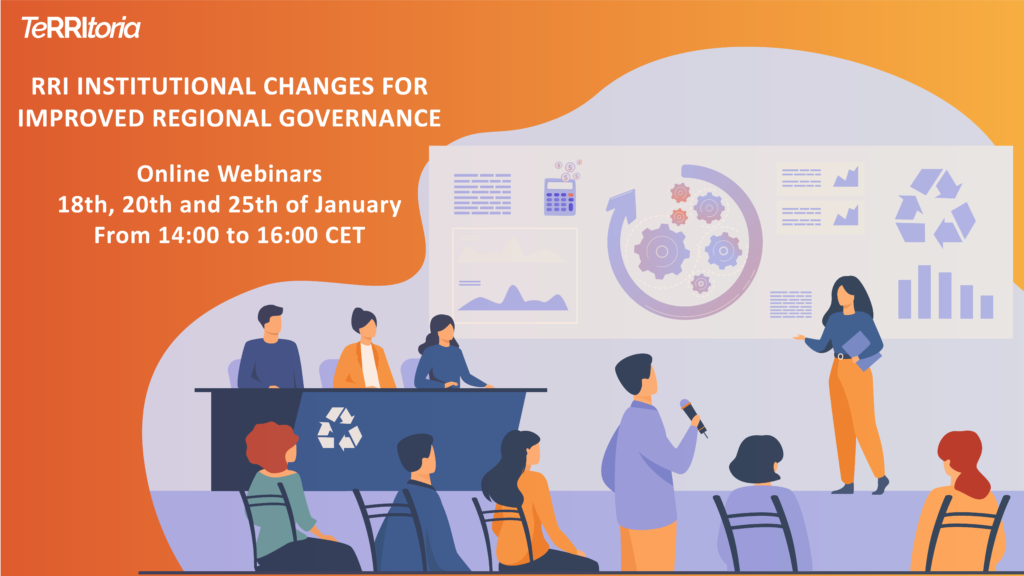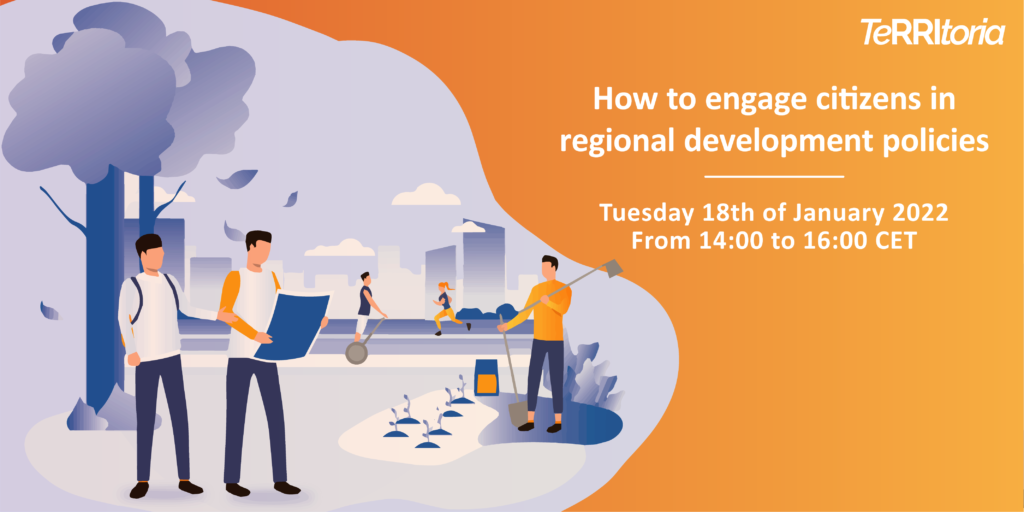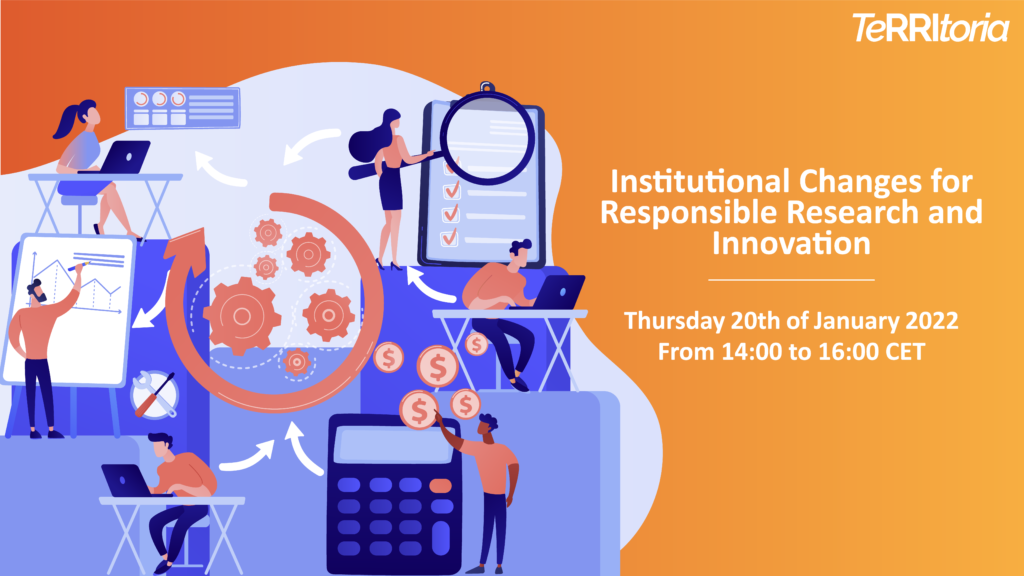The Final TeRRItoria Webinar series aims to on the one hand put forward the experiences gained within the 3 years of TeRRItoria journey, at the same time provide some theoretical means as well as practical experiences that are useful to design institutional changes in territories to implement effective RRI principles into R&I ecosystems and governance structures at regional and local level.
There is a consensus among regional practitioners that future competitiveness will come from the double transition: sustainable and digital. This international conference brings together several experiences that have been approved by projects funded by the Horizon 2020 programme’s Science with and for Society (SwafS) calls. The international conference provides a framework for reflection on these developments and the way forward to provide an advanced legacy.
The TeRRItoria final event series will have the following webinars:
- How to engage citizens in regional development policies, Tuesday 18th January 2022 from 14:00 to 16:00 CET
- Institutional changes for Responsible Research and Innovation, Thursday 20th January 2022 from 14:00 to 16:00 CET
- The way forward, Tuesday 25th January 2022 from 14:00 to 16:00 CET





